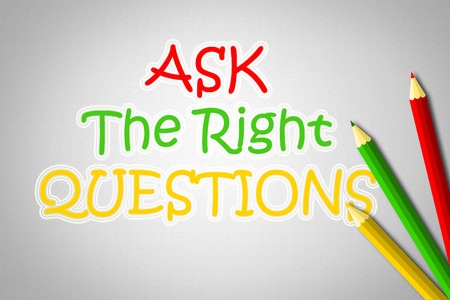How to answer the interview question: “Do you have any questions?”
I can’t tell you how many times hiring managers have told me they aren’t pursuing candidates because they didn’t ask enough questions and didn’t know anything about the company. When I follow up with the candidates and tell them this, I get, “What do you mean? I asked a lot of questions,” or “They didn’t really give me a chance to ask any questions.”
Why does this happen? Your questions aren’t the right questions — the ones the interviewer wants to hear! Preparing your questions ahead of time is the key to mastering the end-of-interview Q-and-A.
Tips to Answer this Interview Question:
Keep this simple thought in mind: you are probably one of five or more candidates visiting on that day or over a short period of time. The interviewer has lots of work they should be doing, their own deadlines, and they know they’ll have to work late all week to catch up. This is especially true of line managers who will be your supervisor. These are busy people who are frantically fitting in interviews around their already over booked schedule. You need to make sure they don’t see your questions as a waste of their time.
The key here is to avoid questions that don’t advance you in the process or demonstrate your knowledge and understanding of the position. You want to pose the right kind of questions to the appropriate people. Often times a miss in this key question area is the difference of landing the job or getting a “no” form letter in the mail.
Example of questions for a Team Lead of a Service Department: This person is interested in making sure that you will follow procedures, get your work done quickly and efficiently, and not be a headache to the rest of the department. You are going to get a “technical” type of interview from this hiring manager. Don’t ask this person about far-reaching topics a CEO or Partner would answer, such as corporate giving or corporate vision. Ask about things that are important to this person: the day-to-day job duties and procedures. Ask for specifics about how renewals are handled, documentation, claims advocacy, face time with the client, etc. Remember, the quality of your question shows your understanding of the industry and the job you are applying for.
Make sure you listen to the answer and follow up with two more questions that reflect your understanding of their answer. Make sure your follow up questions make sense and are not random. This is your chance for give-and-take; you don’t want to look like you need to get through a laundry list of questions. Also the way that the interviewers answer your questions (with specifics, vaguely, or dismissively) will give you clues as to what it might be like to work with them on a daily basis.
A great question strategy is to use words like “we” and “us” and “I” in your questions, then listen to see if the employer responds back with answers that include the word “you” or if they respond with “the candidate we choose”. You want them to see you in the position, and when they include you in their answers, you know that they feel positive about hiring you for the role.
For example: “When I start on a renewal, will I sit down ahead of time with the producer to work through a strategy or will I get all the quotes together and then present my findings to him?” If the employer sees you in the role, they will respond with a “we” or “you” in their answer.
At the end of the Q-and-A session, you will start to feel the interview “wrap up.” Your goal is to get the employer over the speed bump of indecision. You want real feedback so you know where you stand. Don’t be afraid to ask when they will make their decision and whether they see anything that would prevent them from moving you to the next stage of the process. If they present you with concerns, it will give you an opportunity to correct any misunderstandings. If they see you as a “go” for the next step, you will have the opportunity to schedule a follow on meeting or at least know that they intend to include you in a second round of interviews. Either way, the interviewer will appreciate your candor and desire for the job.



